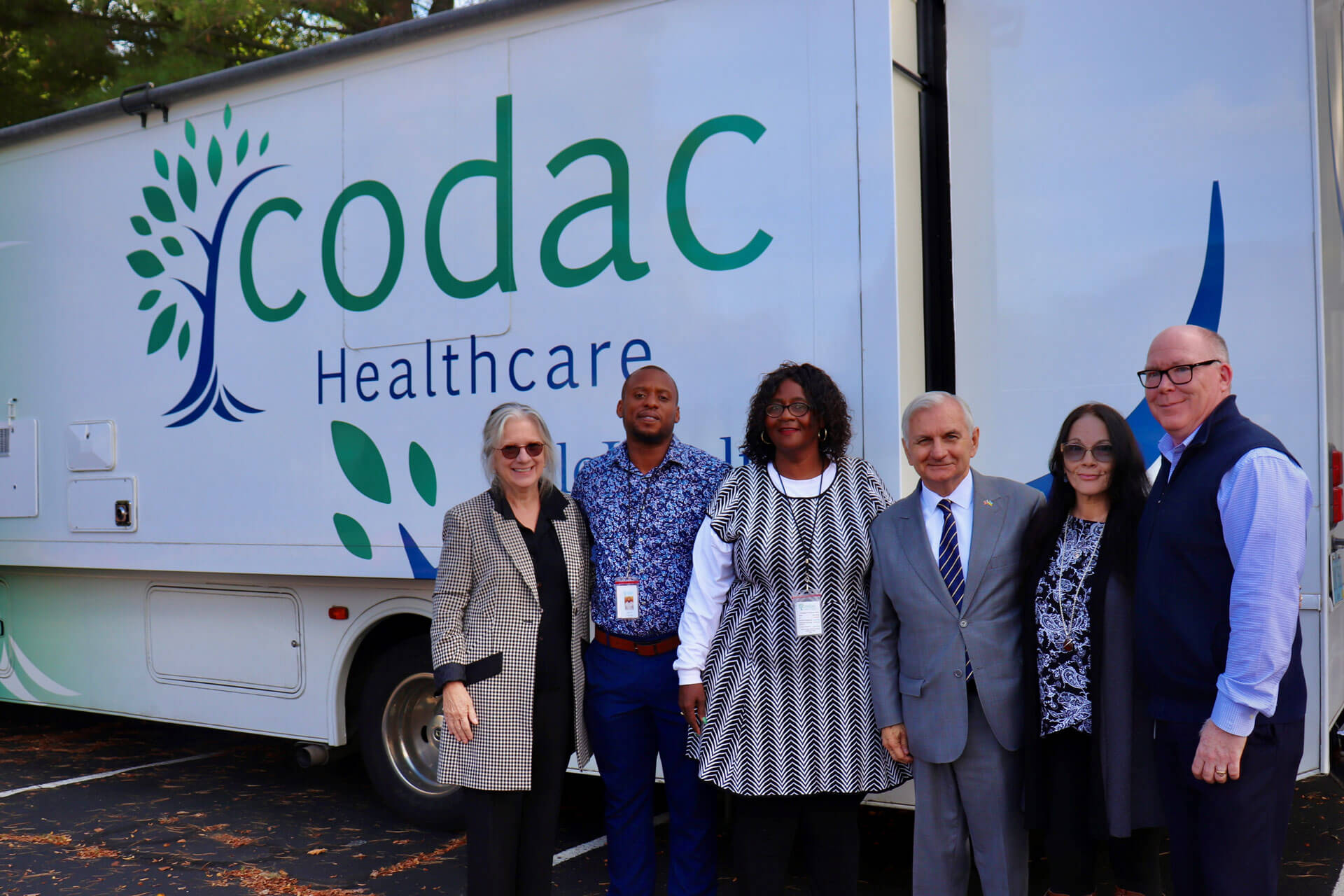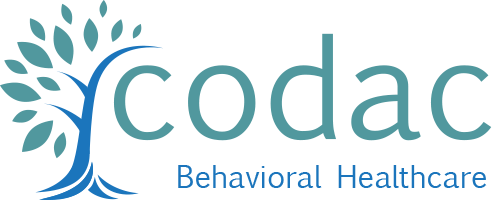
Standing left to right in front of CODAC mobile unit in Woonsocket today: Linda Hurley, president & CEO of CODAC; Neville Johnson, lead nurse; Hazel Hastings, director of mobile treatment; Sen. Reed; Tammy, an advocate with lived experience; Thomas Joyce, director of administration.
U.S. Senator Jack Reed today joined CODAC Behavioral Health Care experts, health professionals, recovery leaders, and advocates with lived experience to mark the close of National Recovery Month and to honor Rhode Islanders who have taken difficult but important steps to recovery.
Senator Reed and CODAC President and CEO, Linda Hurley, convened a group of dedicated service providers in front of CODAC’s mobile unit to promote and support the recovery community, celebrate the providers who make recovery possible, and to share tips and guidance on how to navigate conversations and offer meaningful support to individuals experiencing the complexities of substance use disorder.
“Being in recovery is incredibly challenging. It takes strength, courage, and resilience and we want to encourage people in all stages of their recovery journey. The professionals at CODAC do incredible, life-saving work assisting Rhode Islanders experiencing substance use disorder. The folks here at this mobile unit have helped people come back from the abyss and transform their lives for the better. We know it is possible. And we’ve got to expand recovery and prevention efforts,” said Senator Reed. “Overcoming addiction and taking care of your mental health isn’t something you have to do alone. We’re here to build on that spirit of community, compassion, and connection. We honor those we lost to the curse of addiction and overdoses, we encourage people in recovery, and we recommit to connecting people to effective treatment. That helps us build healthier communities for all. Together, we can help break the cycle of addiction and offer hope and care for everyone in need.”
“As we close recovery month, it’s important to recognize that recovery is truly attainable. It’s also a time to honor those that we’ve lost. However, this is a time of hope, and treatment works; harm reduction works. We’re fortunate in Rhode Island to have a Congressional delegation led by Senator Reed that has placed recovery as a priority in our battle against opioid addiction,” said Linda Hurley, CODAC President and CEO. “Senators Reed’s and Whitehouse’s sponsorship and leadership in passing the Comprehensive Care and Recovery Act has helped make possible our innovative treatment options like our mobile treatment unit and our new state-of-the art integrated healthcare center opening in 2025 in Providence.”
CODAC’s mobile unit, which provides wraparound services for Rhode Islanders recovering from opioid addiction, can be rapidly mobilized to communities with higher rates of overdoses. During today’s event, speakers noted that last week, the Rhode Island Department of Health (RIDOH) issued a public health advisory to bring attention to the non-fatal overdose rate in Woonsocket reaching double the statewide average.
Substance use disorder affects more than 48 million Americans annually and it is critical to the health and well-being of communities nationwide to change the stigma surrounding addiction and promote a more inclusive, compassionate approach to recovery.
Senator Reed and the Rhode Island congressional delegation recently helped secure $11.36 million in federal funding to better connect Rhode Islanders struggling with opioid use disorder to treatment, recovery, and prevention services.
During today’s event, speakers shared information about how to discuss substance use disorder with friends and loved ones as well as key factors that raise the risk of opioid use disorder. According to the Mayo Clinic, risk of opioid use disorder may be higher among people who:
- Are younger, especially in the teens or early 20s;
- Have a personal or family history of alcohol or other substance misuse;
- Are living with high levels of stress stemming from different aspects of life;
- Have a history of problems with work, family and friends;
- Have had legal problems in the past, including being cited for DUI;
- Struggle with serious depression, anxiety or post-traumatic stress disorder (PTSD);
- Have a history of physical or sexual abuse;
- Take part in risk-taking or thrill-seeking behavior; and,
- Use tobacco heavily.
SAMHSA’s National Helpline — 1-800-662-HELP (4357) — is a free, confidential, 24/7, 365-day-a-year treatment referral and information service (in English and Spanish) for individuals and families facing mental and/or substance use disorders.
Rhode Island’s Department of Behavioral Healthcare, Developmental Disabilities & Hospitals has a Substance Use/Addiction web page offering a host of local resources and helpful information on where to get assistance in Rhode Island.


Recent Comments